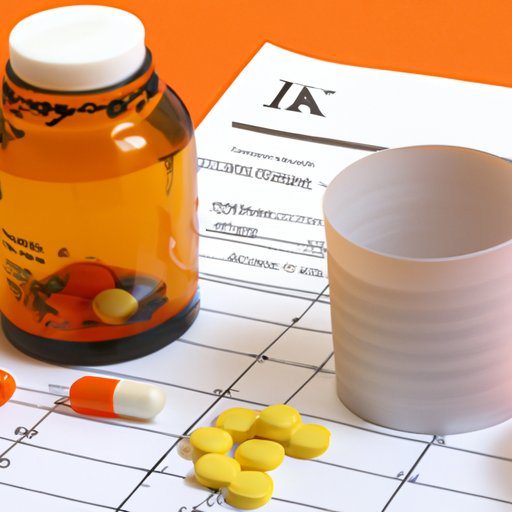
Introduction
You may have noticed the acronym “DM” on your cough medicine’s label or noticed it mentioned in the pharmacy. But what is DM, and what does it do? DM stands for dextromethorphan, a cough suppressant commonly found in over-the-counter cough medicines. While DM can be an effective cough suppressant, it’s essential to understand its potential risks and how it works before taking it. In this article, we’ll explore the science behind DM in cough medicine, its potential risks, its safety, and offer tips for safe and effective use of cough medicine containing DM.
Understanding Potential Risks of DM in Cough Medicine
While DM is generally safe when taken as directed, there are potential risks associated with the use of this medication. One of the most significant risks is an overdose, which can cause symptoms such as confusion, dizziness, and even seizures. Misuse of DM-containing cough medicine with other substances like alcohol or other medications can also be dangerous and potentially life-threatening.
Some people may also be at a higher risk of complications from DM-containing cough medicine. For example, individuals with liver disease, respiratory conditions, or a history of drug or alcohol addiction should be cautious when taking cough medicine with DM.
Is Your Cough Medicine Safe? The Truth About DM
DM-containing cough medicine is available in several different forms, including syrups, liquids, capsules, and tablets. It’s essential to read the label carefully and follow the instructions to ensure safe and effective use.
Additionally, DM-containing cough medicine is generally considered safe when taken as directed. However, it’s important to note that cough medicine with DM is not recommended for children under the age of four.
Compared to other types of cough medicine, DM is a relatively safe option. Other types of cough suppressants, such as codeine and hydrocodone, are opioid-based and carry a higher risk of addiction and other side effects.
The Science Behind DM in Cough Medicine
So how does DM work to suppress coughing? DM works by blocking the brain’s cough reflex. When taken in the recommended dosage, DM can help relieve coughing without the side effects associated with other cough suppressants.
DM was first synthesized in the 1950s as a potential alternative to codeine for cough suppression. It quickly gained popularity due to its safety profile and effectiveness. DM works by binding to NMDA receptors in the brain, which blocks the cough reflex.
Navigating the Use of DM in Cough Medicine: A Guide for Consumers
If you are considering using cough medicine with DM, there are a few factors to consider. First, it’s essential to read the label carefully and follow the instructions for use.
It’s also important to consider your individual health needs and any medications you are currently taking. If you have any concerns, talk to your healthcare provider before taking DM-containing cough medicine.
If you are searching for alternative cough and cold treatments, there are several options available, including rest, hydration, and steam inhalation. Your healthcare provider can offer additional recommendations and guidance.
Breaking Down the Acronym: What Does DM Mean in Cough Medicine?
DM stands for dextromethorphan. Dextromethorphan is a synthetic compound that works by suppressing the brain’s cough reflex. DM is a type of cough suppressant that is available in over-the-counter cough medicines.
Compared to other types of cough suppressants, DM has a lower risk of addiction and other side effects. However, it’s important to follow the instructions for use carefully and talk to your healthcare provider if you have any concerns.
The History and Evolution of DM in Cough Medicine
The use of cough medicines dates back centuries, with many early remedies containing alcohol, opium, or cannabis. In the 1950s, synthetic compounds like DM were developed as a safer alternative to these substances.
DM rapidly gained popularity due to its effectiveness and safety. Over the years, DM-containing cough medicine has evolved to include several different forms and formulations. However, the basic science behind DM remains the same.
Conclusion
DM-containing cough medicine is an effective option for suppressing coughs when used safely and as directed. However, it’s essential to understand the potential risks associated with DM use and to follow the instructions on the label.
If you have any concerns about using cough medicine with DM, talk to your healthcare provider. There are also alternative treatments available, such as rest, hydration, and steam inhalation.
Overall, understanding the science behind DM in cough medicine and its potential risks and benefits is key to safely and effectively managing coughs and colds.





